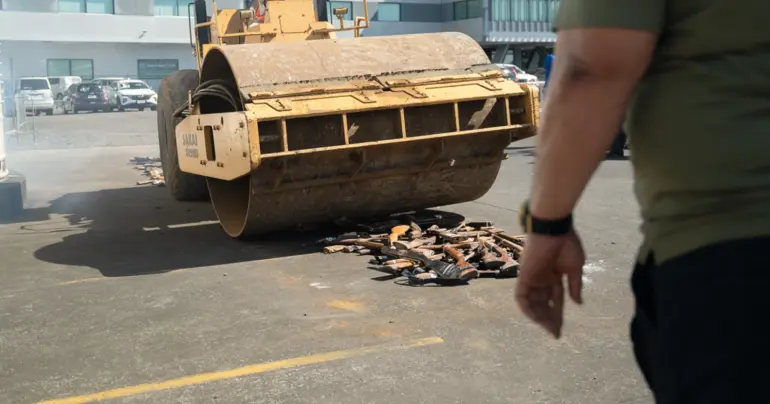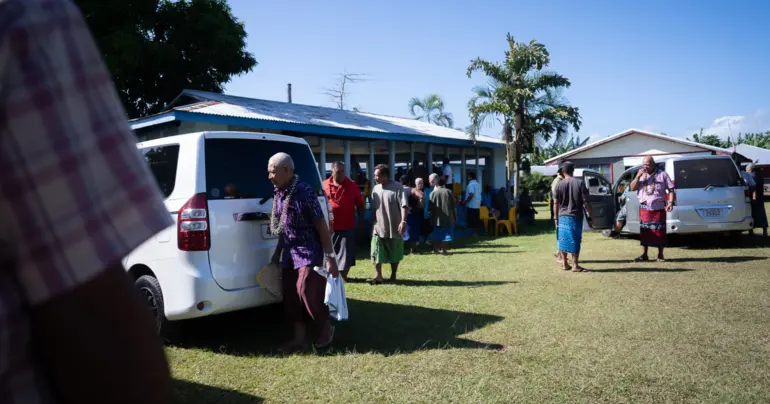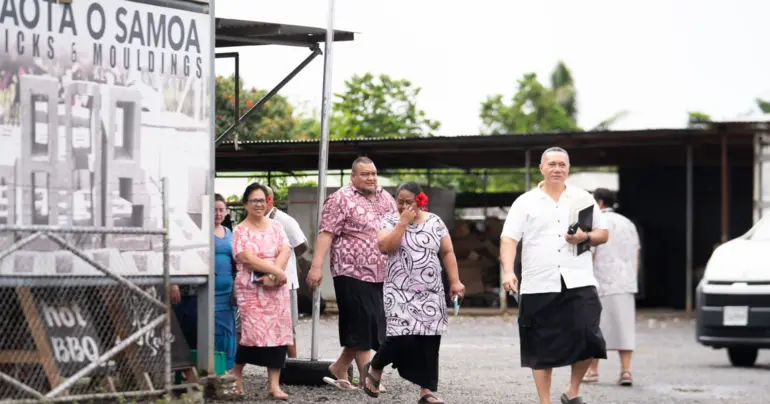Progress Government’s paraquat ban call
It had been a long time coming for dog lovers and animals generally in Samoa, after last year’s multiple paraquat poisoning incidents, which led to a public outcry and also got the local police involved.
The official line of the Samoa Government – through the Ministry of Agriculture and Fisheries – had always centered around the ban's effects on the country’s agriculture sector, especially farmers, who use the pesticide as a weed killer. This is despite growing cases internationally of its links to Parkinson's disease, especially in the U.S. (where its use is legal), and long-term exposure resulting in lung damage, lung scarring, kidney failure, and even heart failure.
In August 2020 when calls increased for a nationwide ban after the non-profit organisation Animal Protection Society (A.P.S.) reported an alarming increase in dog poisoning cases dating back to May of that year, the C.E.O. of the M.A.F. Tilafono David Hunter said those pushing for the ban should provide evidence of the dangers of paraquat to animals.
The then C.E.O. said that the decision to ban the pesticide lay with the Ministry’s Pesticide Committee, which the M.A.F. chairs and runs a secretariat for. The Committee comprised representatives from the Ministry of Health, the Ministry of Natural Resources and Environment, and the Scientific Research Organisation of Samoa.
Explaining the role of paraquat use in the agriculture sector, Tilafono said a lot of farmers in Samoa use paraquat as a weed killer due to the large size of their farms, some of them measuring 50–100 acres.
In July last year, the M.A.F. acknowledged Samoa’s obligations under the Rotterdam Convention, which Samoa ratified in 2002 and came into force in 2004, and said they hoped to complete their assessment on a paraquat ban at the end of 2022. A month later in August last year, the Samoa Conservation Society led a public discussion on the dangers of paraquat as more dog poisoning cases were reported to the A.P.S.
But there is light at the end of the tunnel – if developments at the recent meetings of the Conferences of the Parties to the Basel, Rotterdam, and Stockholm Conventions from 1–12 May 2023 are any indication.
A Samoa Government official has finally come out at an international public forum to express support for a paraquat ban. An article on the comments attributed to Seumalo Afele Faiilagi, the Assistant C.E.O. of the M.N.R.E. was published in yesterday’s edition of Samoa Observer.
“Samoa once again strongly supports the listing of the liquid formulations, containing paraquat dichloride formulation in Annex III to the Rotterdam Convention,” he said at the conference as part of an intervention by Samoa. “The decision will support Samoa’s effort currently underway in reviewing the paraquat situation in our country for a potential total ban of paraquat in Samoa.
“Once again Madam President, this is to ensure an environmentally sound management of chemicals to protect our island’s environment and human health.”
We commend the Secretariat of the Pacific Regional Environment Programme (SPREP) for including details of Samoa’s intervention on paraquat in a press release, which was published on its website and picked up by this newspaper. We and subsequently the public wouldn’t have known.
With Seumalo advising the parties of the Rotterdam Convention of where the Samoa Government currently is, the Pesticide Committee within the M.A.F. (of which the M.N.R.E. is a member) should now give the public a timeline on when its review will be completed and work on formulating legislation for a total ban will start.
It is no use making presentations at international forums – advising of the review by the Samoa Government – and returning to the island, and maintaining the status quo without making any serious move to kickstart the legislative work, which is needed to put in place a full ban.
There are a lot of citizens and residents as well as non-government organisations that feel strongly about the issue and should be kept in the loop on what the Samoa Government’s next steps are. Even the country’s farmers – who’ve predominantly used the pesticide, though there’s been evidence over the years of it being used in residential homes and by people without a permit – deserve to know the latest on the paraquat ban review and what are the alternatives that the Ministry is considering.
Public or stakeholder consultation is an important part of a democratic process to inform Government-initiated public policy. It is time the inter-agency Pesticide Committee gets out and advises everyone of where it is at, in terms of a review and a put-out timeline that everyone can work towards.











